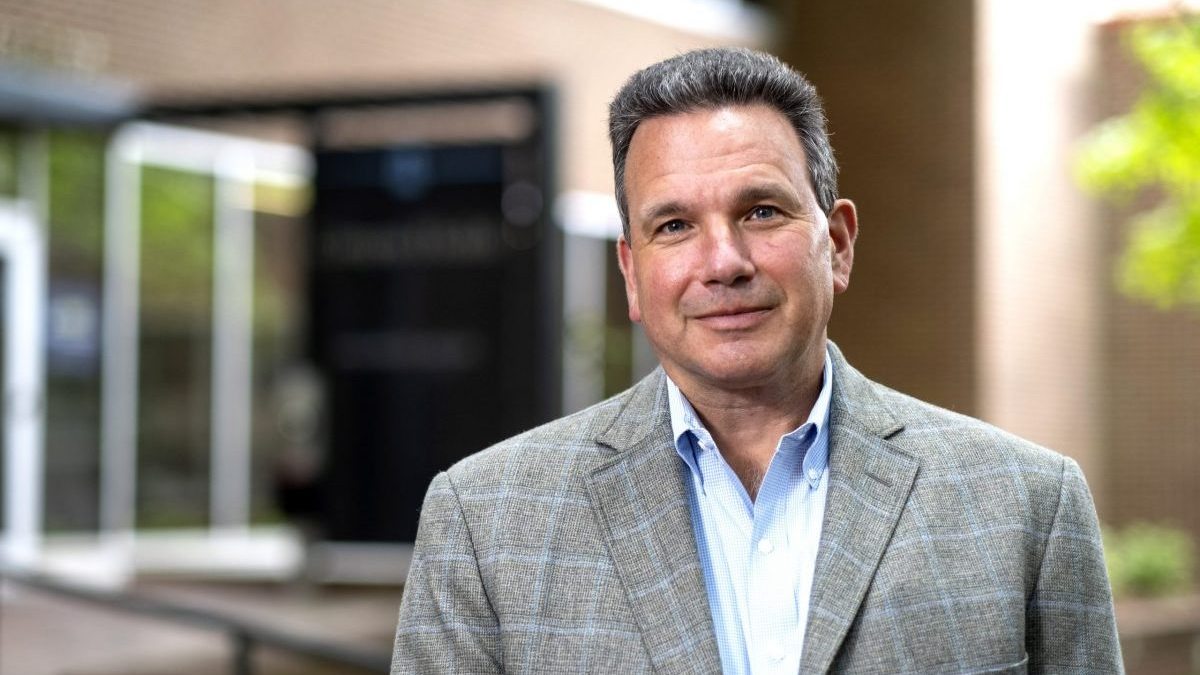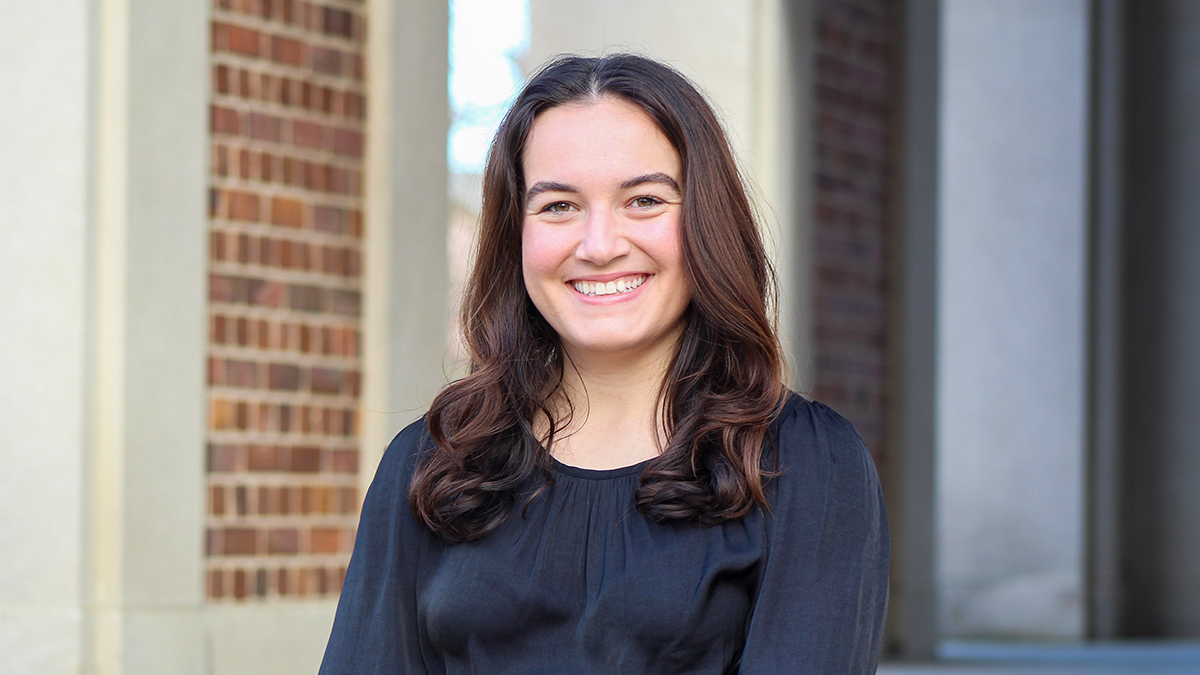Always on call
Sports Medicine Director Dr. Mario Ciocca, a 2021 Massey Award winner, helped keep student-athletes healthy, safe and competitive during the pandemic.

Throughout the COVID-19 pandemic, the first and last calls that Carolina Athletic Director Bubba Cunningham made each day were to Dr. Mario Ciocca. As director of sports medicine, Ciocca put in long hours to make sure Carolina’s 800+ student-athletes stayed healthy and continued to play sports safely.
“Through so much stress and uncertainty, he has handled everything with calm, patience and care — never turning down a Zoom meeting with a team or text from a coach. He has been tireless in his efforts,” Cunningham wrote in his letter nominating Ciocca for the Massey Award. “His medical care has helped thousands of students fulfill their dreams of competing at the college and professional levels. And through this pandemic, his dedication, compassion, guidance, grace and service have inspired us all.”
In the biggest challenge of his career, Ciocca faced the complete shutdown of athletics in spring 2020, followed by an uncertain fall 2020 semester and the full-blown return of 27 sports for spring 2021. In that topsy-turvy season and a half, Tar Heel student-athletes not only survived the pandemic, they thrived, capturing a national title in field hockey and making it to the national semifinals in five other sports: men’s and women’s lacrosse, men’s and women’s soccer and women’s tennis.
Engineering and exercise
Ciocca knows what it’s like to be a young college athlete with your dreams put on hold by forces outside your control. In his case, after his sophomore year at Columbia University, he had to work his way back to the pitcher’s mound from an elbow injury requiring surgery.
He had gone to Columbia to study electrical engineering. His parents, who had come to America from Italy in the 1950s for “opportunity and a better life,” Ciocca said, “always encouraged me to work hard and to be educated.”
However, electrical engineering turned out to be a subject Ciocca didn’t really like. He wanted to play major league baseball, and though he was good enough to pitch for his college team, he knew he would never make the pros. After surgery for his baseball injury and working with an athletic trainer for rehabilitation, he began to consider sports medicine, a career that combined his interest in exercise, health and sports with science. He changed his major to biochemical engineering to fulfill pre-med requirements and, after graduating from Columbia, enrolled in New Jersey Medical School.
Many doctors who work in sports medicine specialize in orthopedics, but Ciocca took a slightly different path. “I had a mentor who was involved with primary care sports medicine, and I like the interaction with the patients that you have with that and the ability to take care of a multitude of conditions,” he said.
While at medical school, he also met and married a fellow student, Cynthia Denu, and the two new doctors began the search for a medical school program that would match both for residencies in internal medicine. They picked Carolina, where he completed a fellowship in sports medicine, and she completed a fellowship in nephrology (which deals with kidneys).
“We didn’t know much about North Carolina, but we came here and interviewed, and both of us sort of fell in love with everything about it,” Ciocca said. “We thought we’d be here for three years.” That was in 1993 and both doctors, Ciocca and Denu-Ciocca, are still practicing medicine here. They also have four children, ages 15 to 25.
Changes in sports medicine
Carolina was an early adopter of the “independent medical model” of sports medicine, in which athletic trainers report to Student Affairs and Campus Health, not to the Athletic Department, implementing the model in the 1970s. Concerns about serious medical issues like heat stroke, concussions and potential long-term disabilities take priority over any particular game.
“It’s definitely all worth it when you can save someone’s life. And I think that has happened a lot of times here with everyone that works here,” Ciocca said. “You are altering situations where they would have had some serious consequences, whether it’s long-term disability or death.”
The sports medicine staff has grown to include 15 athletic trainers, four physicians, a nurse, two nutritionists and three sports psychologists plus other Campus Health employees and interns.
“It’s become not just taking care of injuries but caring for the whole athlete including injury prevention, improving performance, body recovery, general wellness, mental health as well as physical health,” Ciocca said.
Healthy and safe
During the pandemic, Ciocca and his staff maintained the delicate balance of protecting student-athletes from a highly contagious disease and helping them continue to compete in their sports. Each sport had its own challenges; there was no one-mask-fits-all solution.
Teams met outside instead of in. They traveled on more buses so players could sit farther apart. Student-athletes picked up box lunches instead of eating together in a dining hall. Volleyball team members wore masks while competing. Wrestlers didn’t wear masks, but they were tested three times a week as well as within 48-hours before and after each match. Basketball players used wearable technology that tracked when they came within 6 feet of each other.
“He helped put together best practices when we had to shut down sports last spring, oversaw the drafting of policies and procedures when student-athletes and coaches were allowed to return in the fall and has continuously guided us through everything from testing to contact tracing to travel best practices to isolation lengths,” Cunningham wrote. “He has been a leader in the Atlantic Coast Conference, as well, serving as Carolina’s representative on the ACC’s Medical Advisory Group, which sets rules relating to COVID-19 for all 15 league schools.”
For his leadership and service throughout the pandemic, Ciocca received the 2021 Massey Award.
“From the very beginning of the pandemic, he has been a rock and helped us provide a roadmap that has afforded our athletes the opportunity to compete in their sports safely and successfully,” wrote Dwight Hollier, senior associate athletics director for student-athlete health and well-being, who seconded the nomination. “Dr. Ciocca never wavered, and our athletics department has benefited significantly.”
This story is part of The Well’s coverage of the C. Knox Massey Distinguished Service Awards, which recognize “unusual, meritorious or superior contributions” by University employees. Look for new recipient profiles in the coming weeks or read others you might have missed.




